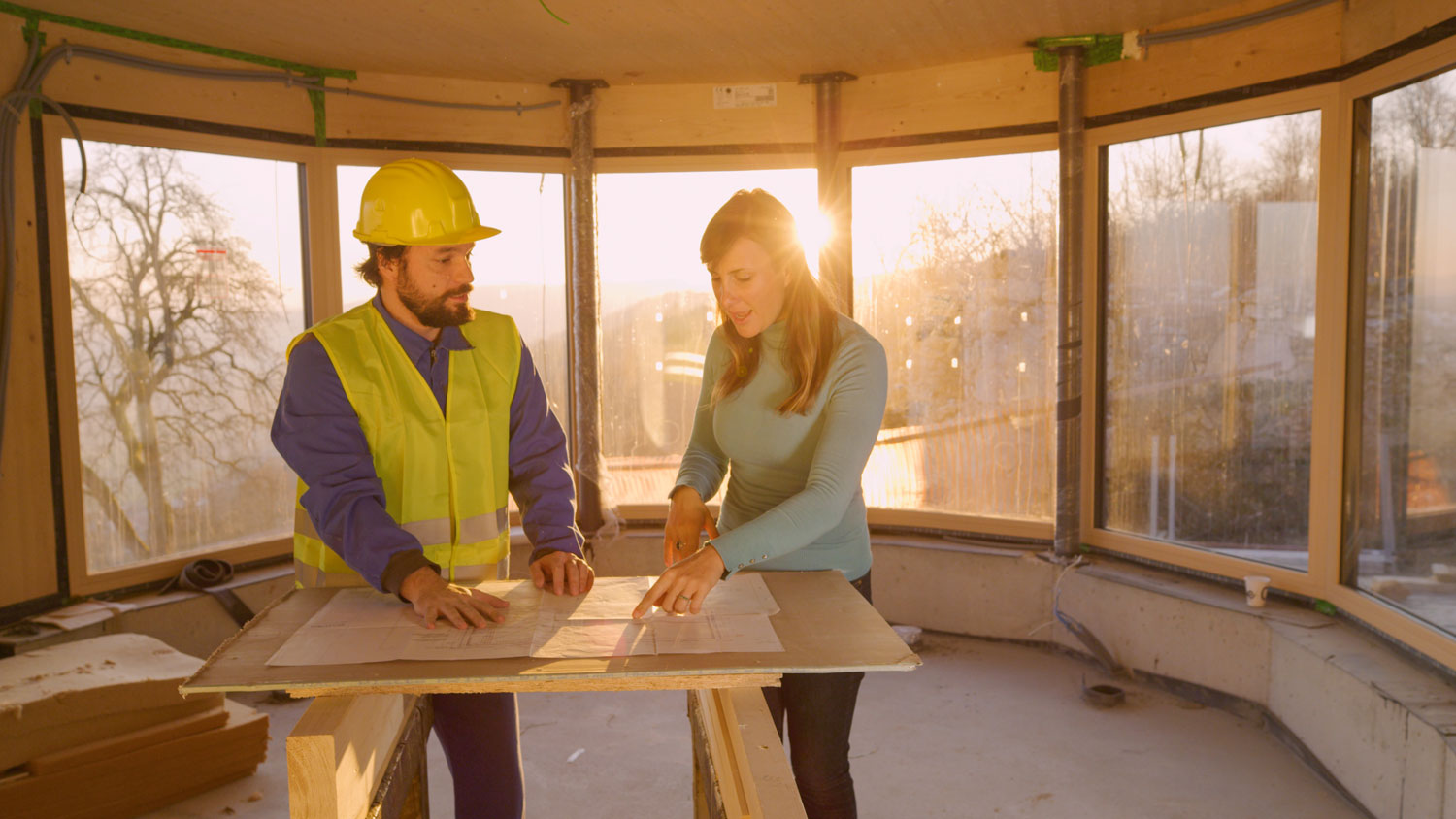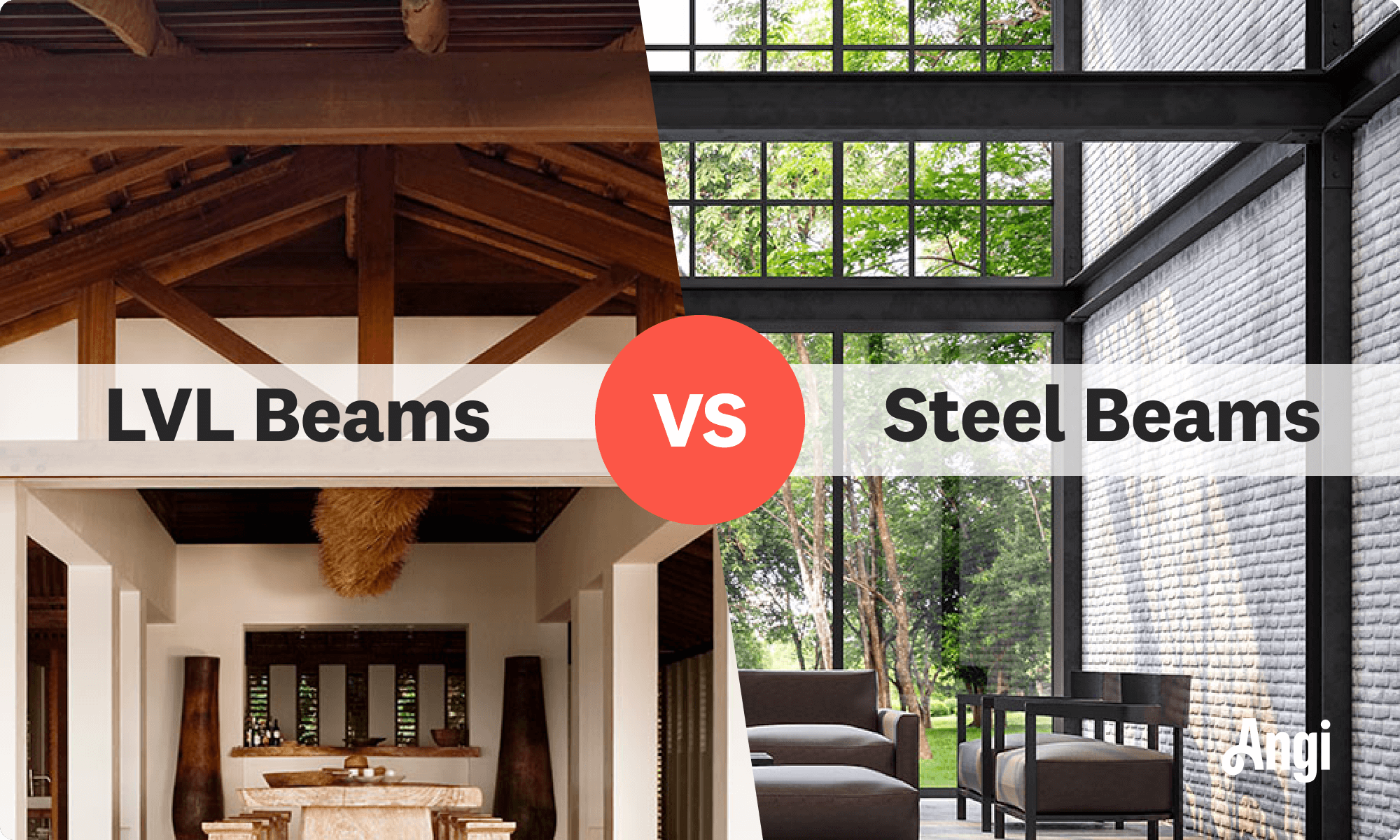
The cost of a structural engineer is easily justifiable given the value they bring to the table. Use this guide to see what hiring your professional will total in Denver, CO.
Steel I-beam installation costs between $1,200 and $5,350, with an average of $3,200. A pro will need to assess the size of the project and the labor involved.


Steel I-beam installation costs $100 to $400 per linear foot, and the average homeowner spends $3,200.
Longer beams are more challenging to deliver and maneuver, making them more expensive to install.
To safely install an I-beam, you’ll need to hire a structural engineer, which costs $350 to $800 for an assessment.
In most cases, considering a full replacement of a damaged I-beam is worth it to restore structural integrity.
Additional renovations and repairs, such as removing a load-bearing wall or adding foundational piers, can increase project costs by $1,400 to more than $10,000.
Steel I-beam installation costs around $3,200, on average, but prices can fall anywhere between $1,000 and $20,000, depending on the length of the beam you need and whether you’re including it as part of new construction costs or a home renovation. Expect to pay between $100 to $400 per linear foot for your steel I-beam, and expect prices to be higher if you’re retrofitting an existing home as part of a renovation project.
Installing steel I-beams costs $100 to $400 per linear foot for labor and materials. Materials account for just a small portion of the total, but the size of the beam will also affect labor costs, with longer beams requiring more work to deliver and maneuver the beam into place.
| Steel I-Beam Size (Feet) | Average Cost |
|---|---|
| 10 | $1,000–$4,000 |
| 12 | $1,200–$4,800 |
| 16 | $1,600–$6,400 |
| 20 | $2,000–$8,000 |
| 30 | $3,000–$12,000 |
| 40 | $4,000–$16,000 |
| 50 | $5,000–$20,000 |
Safely installing a steel beam requires the help of a structural engineer. Hiring a structural engineer costs $350 to $800 on average for an assessment. The engineer will inspect the property and provide a design with the correct beam size so you can hire a company specializing in steel beams to complete the job.
“Our rule is to never change a structural wall without the review and official letter from a licensed structural engineer,” says Bob Tschudi, Angi Expert Review Board member and general contractor in Raleigh, NC. “Not only can they advise you on how to secure the new framing, but they often can share ideas that other contractors paid them to identify.”
Steel beam installation can come with plenty of prep work. Here are the common additional costs that homeowners encounter when tackling this project.
| Additional Costs | Average Cost |
|---|---|
| Permits | $150–$2,000 |
| Delivery costs | $80–$400 |
| Removing a wall | $1,000–$10,000 |
| Relocating a gas line | $250–$750 |
| Relocating plumbing | $360–$2,000 |
| Removing asbestos | $1,200–$3,200 |
| Ceiling repairs | $45–$90 per sq. ft. |
| Foundational piers | $2,000–$4,000 each |
You’ll likely need a permit to replace a wall with a supporting beam. Prices vary between $150 and $2,000, so contact your local construction and inspections office. You might also need permits to move any plumbing or electrical.
Your structural engineer should ensure there’s proper strength to support the weight of the floor above. Don’t skip this step. Your permit might require it, but even if it doesn’t, you run the risk of collapse without a good foundation.
While your contractor will include delivery fees in their flat estimate, delivery will account for $80 to $400 of the total cost of the steel I-beam. Delivery fees increase if you live in a hard-to-reach area or if you need a particularly long steel I-beam that requires special equipment to deliver.
When preparing to add a steel I-beam-supported wall, you'll need to remove the old one first. Always double-check whether a wall is weight-bearing before removing it. If it is, the cost of removing the weight-bearing wall ranges from $1,400 to $10,000.
Whether you're constructing a new wall or tackling pier-and-beam foundation repair, you may encounter gas lines that require delicate attention when installing your steel I-beam. Only a specialized contractor—typically a plumber—can adjust gas lines, and the cost to hire a gas pro to move a gas line runs between $375 and $750, depending on the length of the pipe.
Considering a redesign of your kitchen, bathroom, or basement? Pipe replacement costs range between $370 and $2,100, though they heavily depend on the type and use of the plumbing. For example, moving a washer and dryer hookup can cost up to $2,000. Plumbing relocation costs can get expensive if you have pipes running through the wall you’re removing and replacing with a steel I-beam, so make sure to get separate estimates before hiring anyone.
Older homes may have larger problems lurking in the walls, including asbestos. Budget between $1,200 and $3,300 for the cost of asbestos removal, and always have the area checked before disturbing old insulation yourself.
Altering the design of walls can also affect the state of the adjacent ceiling. Remember that ceiling repairs cost between $45 and $90 per square foot, while replacing drywall costs $45 to $55 per square foot.
You may also need to install new ceiling beams or roof joists to reach the new steel I-beam, so you might need to budget for a larger section of ceiling repair than you initially thought. Ask your professional engineer how much of the ceiling they’ll need to remove for access during installation.
Since installing a steel I-beam means moving the structural loads in your home, you may need to pay to install additional foundational piers to provide support for the new loads. I-beam foundation piers cost between $2,000 and $4,000 each. The price includes the cost of labor for a foundation repair team near you.
Even if you’re an avid DIYer with tons of experience, you’ll need some help to install your new steel I-beam. In fact, it’s a job that legally requires help from a certified professional throughout most of the country. Installing a steel I-beam involves making structural changes to your home, and any mistakes can lead to catastrophic consequences, including entire home collapse.
At a minimum, consult a structural engineer near you to ensure the beam size and placement are adequate to support the house. You’ll likely need to reroute things like plumbing, electrical, and gas lines that run through the wall. Hire professionals if those tasks are out of your comfort zone or require a licensed professional or a permit. In some cases, you’ll only get approved for the permit if you confirm that you've hired a professional for the job.

Before solidifying your decision to install a steel I-beam, consider these alternatives:
Solid wood beams cost $6–$80 per linear foot and are the most traditional option for residential construction. Wooden beams aren’t as strong as steel I-beams and can’t span the same distances, but exposed wood beams provide a natural aesthetic.
Glulam beams cost $6–$40 per linear foot. Manufacturers make these beams with wood laminations pressed together with adhesives. They’re considered to be more durable than solid wood beams and can help create more open spaces with fewer supports getting in the way. However, they can’t stretch as far as steel I-beams without middle supports.
Laminated veneer lumber (LVL) is $3–$12 per linear foot. These are similar to glulam beams in that they’re made from engineered wood and sliced wood veneers. This material doesn’t shrink or warp and can handle vertical and horizontal loads. They’ll stretch longer than wood beams of equivalent sizes, but again, not nearly as far as steel I-beams can.
Keep in mind that some of these options are not as durable as steel I-beams and cannot open up your space as much.
| Support Beam Material | Average Cost (Per Linear Foot) |
|---|---|
| Laminated veneer lumber (LVL) | $3–$12 |
| Natural wood | $6–$80 |
| Glulam | $6–$40 |
| Steel I-beam | $6–$20 |
If you already have a steel I-beam in place and are experiencing issues with sagging or beam integrity, your best option is to replace it altogether. Repairing and replacing will typically require a similar amount of work, and in both cases, you need to build back the wall or ceiling. So, you’re usually better off carrying out a full replacement. This will leave you with the highest level of structural integrity—plus, a replacement should last longer than a repair.
If you’re dealing with corrosion on your existing steel I-beam, it’s still a good idea to go with a full replacement, but you should also have a professional assess why you’re experiencing the issue in the first place. They might be able to direct you toward plumbing leaks or other problems that are causing the underlying issue to alleviate future concerns.
Steel I-beams will almost always run higher than the cost of LVL beams, but you’re saving money in the long run. Steel beams are incredibly strong, adding decades, if not centuries, of support to your home. There are a few ways to save on the cost of I-beam installation to get the best support for your home without breaking the bank:
Wait for the price of steel to drop before giving the green light for your project.
Work with a local contractor who has access to wholesale steel beam prices.
Start your project outside the busy construction season—often in the summer.
Consider alternative materials in case they fit your structural needs and cost less.
Installing a steel I-beam will almost always increase your home value because it allows you to remove load-bearing walls and support beams to open up your space. Most homebuyers prefer open floor plans, and installing a steel I-beam is the best way to achieve that. You can reasonably expect a return on investment of around 80% to 90% of the installation cost, which is outstanding.
Home is the most important place on earth, which is why Angi has helped more than 150 million homeowners transform their houses into homes they adore. To help homeowners with their next project, Angi provides readers with the most accurate cost data and upholds strict editorial standards. We extensively research project costs to develop the pricing data you see, so you can make the best decisions for you and your home. We rely on reputable sources, including the U.S. Bureau of Labor Statistics, academic journals, market studies, and interviews with industry experts—all to ensure our prices reflect real-world projects.
Want to help us improve our cost data? Send us a recent project quote to [email protected]. Quotes and personal information will not be shared publicly.
From average costs to expert advice, get all the answers you need to get your job done.

The cost of a structural engineer is easily justifiable given the value they bring to the table. Use this guide to see what hiring your professional will total in Denver, CO.

The cost of a structural engineer is easily justifiable given the value they bring to the table. Use this guide to see what hiring your professional will total in Charlotte, NC.

Looking to expand your ceiling and send claustrophobia running for the hills? This guide covers the cost to vault a ceiling and factors that impact estimates.

What is an LVL beam? Read about LVL beams to determine if this material is safe and suitable for your project.

It can be hard to choose the right pro for any job, but it matters. Learn how to hire a structural engineer who'll get the job done right from start to finish.

Before you can start a major remodel, you need to know how to tell if a wall is load-bearing. Learn what a load-bearing wall is and how to identify one.